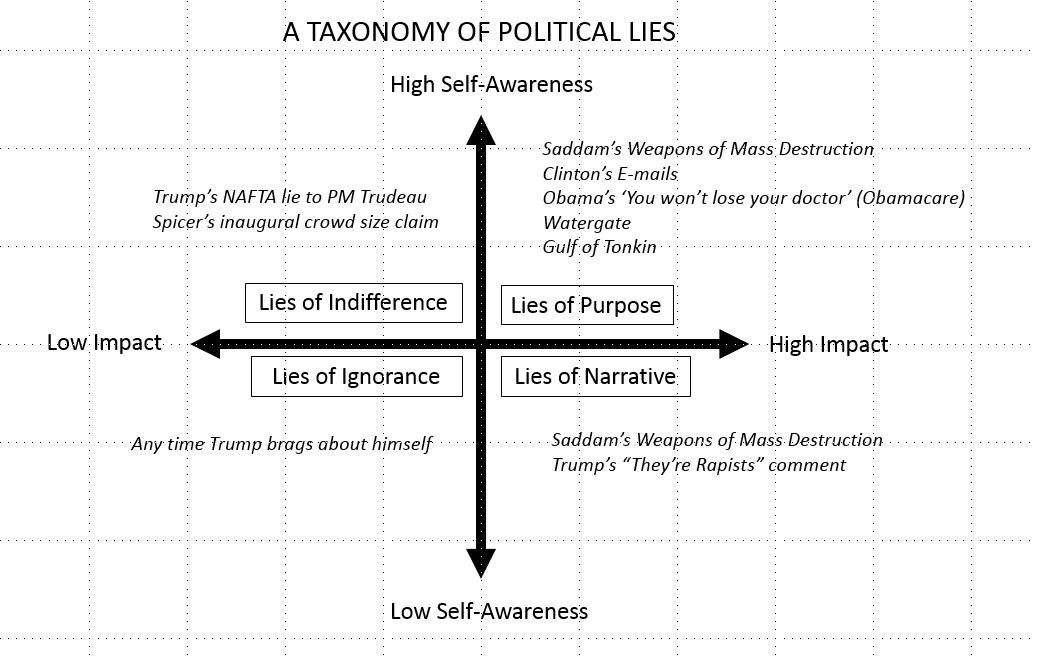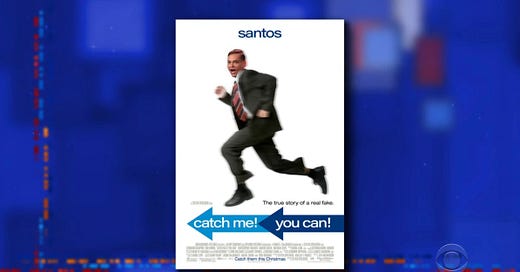It is human to lie.
And yet … everyone other than politicians seems to pay the price for lying. Some lose their friendships, others their marriages. If you lied as much as politicians do, you’d almost certainly be fired from your job. However, both elected officials and those campaigning for office lie with increasing impunity without facing any meaningful consequences … why?
If you are elected based on lies … are you really elected at all?
George Santos, an incoming freshman congressman this year, invented his entire campaign biography. Almost nothing he has said is true:
He claimed he was a “Proud American Jew” (he’s Catholic).
He also claimed to have family from Angola. That’s a lie.
He never attended prestigious private schools.
Let me just list a few more here to save space: he never ran a real estate empire, or a family wealth fund worth millions, or a charity that saved over 2,400 dogs.
Then there are the lies that implicate others:
He said that four of his employees died in the 2016 Pulse nightclub shooting in Orlando, FL. None of the people that died in that horrific attack worked for Santos.
Perhaps most appalling was the claim on his campaign website that his mother was a “groundbreaking executive” who died due to the 9/11 attack. In reality, his mother passed away 15 years later due to cancer. She worked as a housekeeper.
When all this was discovered Santos used a quote from Winston Churchill to defend himself against his lying and the quote … was false!

Given the scale of Santos’ lies … who did people actually vote for? Did they vote for Santos? Or a made-up person who doesn’t really exist? In politics - you are saying to the people, give me power over you because I have experience, wisdom and competence. But what if that wisdom is unearned and that experience all made up? The social contract is broken. In that case, the people aren’t really obliged to give you any power at all.
So why do they? Why doesn’t the House expel politicians like Santos?
What is a lie?
Lies are complicated creatures. They are difficult to detect and hard to categorize. Santos’ blunt force lying is a growing phenomenon, but still the exception. Instead, most politicians obfuscate, exaggerate, or simply refuse to believe that they are lying.
They lie to themselves about the truth.
These kinds of lies, ones the speaker believes are the truth, are the hardest to detect.
Lies are like performance-enhancing drugs, but politicians don’t get disqualified for doping.
Was it a lie when Donald Trump confidently asserted that he was the “smartest person in the room?” Was Barack Obama lying when he declared, “If you like the health care plan you have, you can keep it”? Both speakers believed in the veracity of their words.
Whether outright or not, lies also have differing consequences. Some lies, like Colin Powell’s assertion that Saddam Hussein had weapons of mass destruction, can lead to the loss of thousands of lives. Others, like Sean Spicer’s declaration that Donald Trump’s inauguration was the largest ever, are less harmful. Yet, when broadcast and social media treat all lies as equally dangerous, it desensitizes us and diminishes our ability to distinguish harmless falsehoods from the truly harmful ones.

It is difficult to hold deceitful leaders to account when you can’t even distinguish a lie from the truth.
What is the truth?
The truth can be equally difficult to discern. Sometimes, you just don’t know enough to determine whether something is true, partially because the government acts like it has a right to privacy.
I hold the highest security clearance known to mankind and still have no “need to know basis” for the vast majority of the government’s secrets. Even many members of Congress are not read into the Executive Branch’s secrets. So imagine how little an average American knows.
It is difficult to catch a politician in a lie when you are obliged to trust them as the only source of information on the workings of the government. When you have no basis for verification, you’re left out in the cold, forced to trust the only source of information you have … or develop a reflexive habit of mistrust. Is it any surprise that so many Americans either trust their government implicitly or never at all?
And finally, sometimes the law effectively protects falsehoods from prosecution in ways that make it difficult to determine the truth.
For one thing, the law doesn’t criminalize the kind of lying Santos engaged in to get positions for office unless it relates to narrow matters like citizenship.
Secondly, elected officials also don’t get disqualified for lying because the U.S. Constitution makes a distinction between political speech and “regular” speech. Your right to free speech is strongest when engaging in political discourse, and this applies to politicians as well. The Supreme Court has long granted the highest protections to speech that expresses ideological or political opinion, even if that speech is false, and perhaps even if that speech may otherwise be considered defamatory. For instance, even though lies in commercial advertising are prohibited, politicians are allowed to lie in political advertising.
So what can you do?
Successful politicians lie … right? Donald Trump lied non-stop but still defeated 17 Republican challengers to attain the presidency and Bill Clinton’s approval rating was never higher than after his lies were uncovered, peaking at 73%.
And yet, there have been those who reached our nation’s highest office with a sterling reputation for forthrightness. “Honest” Abe was one of these, and more recently President Jimmy Carter, who is known by his allies as well as his opponents for his honesty and candor.
A leader can be effective and ambitious, powerful and prescient - all while being honest. And here’s how we can help:
The way we uncover, categorize and report on lies needs to become as sophisticated as the liars themselves. Journalists are perhaps incentived to report all lies as egregious, but not every lie is a five-alarm fire. Treating all lies in the same manner desensitizes us and diminishes our ability to discern falsehoods that are truly harmful.
George Washington once said, “it is better to offer no excuse than a bad one.” This is perhaps my least favorite suggestion … but why don’t politicians go back to the time-honored tradition of choosing not to answer a question? Not all questions must be answered, and I may be in the minority here, but I would prefer the dissatisfaction of a question unanswered rather than a lie I must work to uncover and rectify. Indeed, detecting a “dodge” is easier than detecting a lie, and likely to lead to a lot more pressure on elected officials.
Finally, voting remains a perennial solution - vote for honest leaders, not liars.
🎧 Now Playing on the UnfairNation Podcast
✈️ Catch Me If You Can
Houston, TX | Jan 13 -15
Phoenix, AZ | Jan 19
🕺🏽 Opportunities
Jobs:
Visit:
Friend of the unfairnation Ari’s new project - 40k.earth - lets you show off where you’ve traveled to friends, future partners and that guy on the plane.
📅 Reading & Watching
The Phoenix Project, by Gene Kim
🙌🏽 FairNation
She’s been serving the House of Representatives in this capacity for decades and frankly would have made a phenomenal Speaker.
Learn from the mistakes of others.




